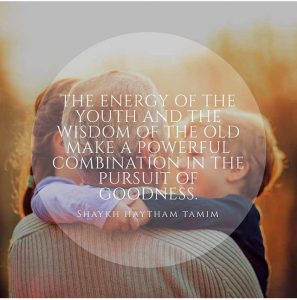The Essence of Eid al Adha

The Essence of Eid al Adha
Anas ibn Malik (may Allah be pleased with him) narrated:
When the Messenger of Allah (peace be on him) came to Medina, the people had two days on which they engaged in games. He asked: What are these two days (what is their significance)? They said: We used to engage ourselves on them in the pre-Islamic period. The Messenger of Allah (peace be on him) said: Allah has replaced you something better than them, the day of Adha and the day of the Fitr. (Abu Dawoud)
Celebrating after worship
The beauty of these two days are that they are closely linked to the pillars of Islam. As we know Eid al Fitr comes after Ramadan, which is one of the main pillars of Islam. And Eid al Adha comes after Hajj, another of the main pillars. This indicates that even our celebration and partying are inextricably linked to something serious – our worship of Allah Almighty.
We do not just worship Allah through seriousness or through salah, fasting, zakat or Hajj alone, we also worship Him by being cheerful, spreading happiness and goodness, having smiles on our faces, and in our celebrations.
We realise then that every single action is valuable. To convert an empty act carried out without thinking, into a fruitful act, carried out mindfully, remember that:
- Actions are underpinned by intentions.
- Purity is the key to make an action accepted as an act of worship.
- Action should be in accordance with knowledge of Qur’an and sunnah.
Purity of the act is what makes counts. And what makes it rewarding in this world and in the hereafter. As we know from the hadith in Bukhari:
Actions are by intention.
The Concept of Sacrifice
The word adha is derived from dahha and odhiyah, meaning to sacrifice. We cannot forget the story of Ibrahim (peace be on him) at Eid al Adha, as he was commanded in his dream to sacrifice his son. He was willing to sacrifice his son, and his son accepted this because he trusted Allah Almighty. So we are reminded by his example of the importance of sacrifice in our life.
Then, when he was old enough to accompany him, he said, ‘O My son, I see in a dream that I am sacrificing you; see what you think.’ He said, ‘O my Father, do as you are commanded; you will find me, God willing, one of the steadfast.’ (37:102)
Islam is not just about sacrificing money. We need to sacrifice our time and our knowledge, and dedicating everything we do for the sake of Allah Almighty.
Eid comes on the 10th of Duhl Hijjah, and as we all know, the Prophet (peace be on him) said in the very famous hadith:
There are no days during which the righteous action is more beloved to Allah than these days (i.e., the first ten days of Dhul Hijjah). He was asked: ‘O Messenger of Allah, not even Jihad in the cause of Allah?’ He replied, ‘Not even Jihad in the cause of Allah, except in case one goes forth with his life and his property and does not return with either of it.’ (Bukhari)
The 10th day is therefore a very blessed day. And in this hadith the Prophet (peace be upon him) he stated that not only are good deeds more valuable than good deeds at any other time, but he also made the comparison with Jihad. What is the relevance of good deeds in these ten days and jihad? The clear connection is sacrificing one’s wealth. The Prophet (peace be upon him) said there are some deeds which are classified as jihad although even though in our minds they are not linked to jihad. The delivery of the Qur’an in the right manner is considered jihad, not just sacrificing one’s soul on the battlefield.
So do not obey the disbelievers, but do Jihad against them with the Quran, a mighty jihad. (25:52)
Living for Allah’s sake, not just dying for Allah’s sake is jihad!
Say, ‘My prayer and my worship, and my life and my death, are devoted to God, the Lord of the Worlds.’ (6:162)
Thus jihad might be on the battlefield but it is also off the battlefield in our daily life. The Prophet (peace be on him) was doing jihad when he was delivering his message was practicing it. When we add this definition of jihad to our minds, then we understand this concept, then we will match those who sacrificed their life, wealth for Allah’s sake. This is why we need to learn more about his message and the prophetic way of delivering it.
If you were to summarise Islam in one world – the message is mercy.
Indeed, in this [Qur’an] is notification for a worshipping people. And We have not sent you, [O Muhammad], except as a mercy to the worlds. (21:106-107)
Mercy is the whole message of Islam. So every single one of us should be a messenger of mercy. We should all perform and reflect his mercy in the community. We should be genuine and truthful to that message.
Khutbah delived by Shayh Haytham Tamim at the Muslim World League London Office on 13 Nov 2012
Transcribed by Talha Jibawi
For your weekly dose of wisdom, click here to subscribe to the Living Qur’an. First Month Free.
The Khutbah Project
An initiative to involve our young volunteers in learning and spreading their deen through transcribing khutbahs.
If you would like to be involved, please contact: ayesha.khan@utrujj.org
Recommended Posts

How Allah strengthens the hearts of believers
April 19, 2024

Don’t be a Ramadani person – Be a Rabbani person.
April 10, 2024


